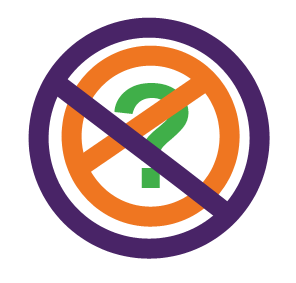
There’s one recurring thing I’ve seen new hires at SEP struggle with over the years. Most commonly, this is something we see in hires that are fresh out of college, but sometimes it shows itself in hires that come to us with years of experience in the industry. While we try to eliminate it in our new hire orientation, sometimes it sneaks past and we don’t help our new hires with it as quickly as we’d like.

What is this thing that so many bright people suffer from? Not asking others for help.
One of the things we encourage here at SEP is helping to raise the water level for your fellow employees. We want people to take the time to answer questions that other employees have. Why? Because we want all of our employees to succeed. We’re an ESOP after all. And part of that means being able to rely on other experts at SEP, even if they aren’t working on the same project as you.
But barring fortuitous miracles, people can only answer your questions if you ask them.
So why don’t people ask for help? I’ve got a few theories as to why we’ve see this happen over and over…
- For fresh-outs: they’re often used to working in classes where you’re supposed to solve things on your own. Generally speaking, final exams aren’t done as a group. The fresh outs that suffer from this the least seem to be those that have come from schools that focus a lot on group projects and encourage asking teachers for assistance.
- For experienced people: whether or not this is a problem seems to be highly dependent on the culture of their previous workplace. Talking with some people, in their previous work cultures, asking questions is a way to appear weak.
- For both: sometimes it is just a fear of being the new person and asking too many questions. Don’t be afraid of that. We’ve all been there. The sooner you ask those questions, the sooner you know the answer and can help others.
Willingness to ask questions is only one part of the problem. Sometimes, you simply don’t realize that you’ve gotten in over your head and need a hand from someone else. You’ve tried all the debugging tricks you can think of, you’ve searched StackOverflow and the rest of the internet, and now you’re starting at the screen hoping for a flash of inspiration. Even those of us that have been at SEP for a while fall into this trap, thinking “I really should be able to solve this on my own! I’ll just take a little longer before I ask for help”, and then fail to realize we’ve spent another four hours and made no progress.
Before you get into this situation,** set yourself a checkpoint**. At first it might help to use some form of timer (if all else fails, set yourself a meeting notice in Outlook). But decide how long it makes sense to work on your current struggle before asking for help. How long? That’s really a gut call based on how difficult the problem is that you are trying to solve. I do have a couple suggestions though that should help give some ideas:
- Are you doing something that you know has been done before on your project, but you can’t figure it out? If you’ve searched the code base and the project documentation and are struggling with this for more than 15 minutes, ask someone else on your project.
- Are you doing something that you know has been done hundreds of times before on various projects either here or elsewhere? Have you searched StackOverflow and done some thorough Google searching? Still spinning your wheels after an hour? Ask for a hand.
- If all else fails, life conveniently has some built-in checkpoints to help you. Have you struggled with something all morning and not made any progress? Definitely find someone to assist you after lunch. Struggle with something all afternoon? Make sure to find some assistance first thing in the morning.
As I said before, you almost never need to go that long before asking for help. I’m saying that if you have been struggling that long, to please take a step back and ask for assistance.
So we’ve talked about how long you should wait before asking for a hand. What about who should you ask?
Well… at SEP, there are several answers to that question:
- Generally, it is always good to ask your fellow team members first
- If your problem is technology-related, check out CHOPS (our recently released internal tool for tracking what skills people have picked up) for experts in the technology
- Ask your project manager (if no one on your team can help, hopefully they will have an idea on who else in SEP you can ask, or they can ask the other managers)
- Ask a mentor
- If all else fails, ask me. I’ll always try to make time to help you find the right person to ask.
This isn’t a strict order, and you can of course skip steps. The important thing though is to ask.
Build awesome things with us.
Check out our current openings for your chance to make awesome things with curious, creative people.